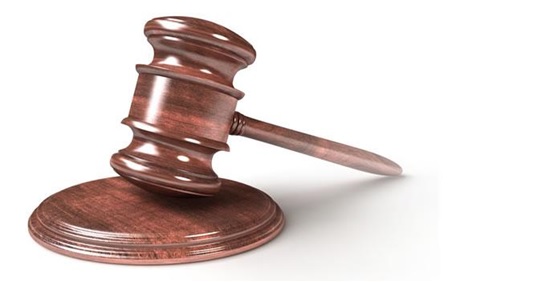LEGAL CORNER – October 2016 – CASE LAW-I :
FACTS OF THE CASE
On 16.04.1991 the Assesse entered into an agreement with M/s East India Hotels Limited (now renamed as EIH Limited) to acquire under a license an area of 9,000 square feet in Hotel Oberoi Towers, Bombay (now renamed as Trident Nariman Point) for the purpose of using the same as a shopping centre.
The tenure of the said leave and license was a period of 50 years at a fixed monthly license fee as agreed between the parties.
The Assesse is Subsidiary of M/s East India Hotels Limited.
After acquiring the said shopping space, the assesse utilized it in granting different portions of the shopping space to various parties who were interested in setting up shops there with the condition that the shopkeepers had to subscribe to a specific number of shares of the assesse apart from payment of monthly charges (termed as contribution from shops).
The Assesse also provided various services to the licensees like air-conditioning, telephone services, maintenance, electricity, water, sanitary, security etc. In consideration for the same, the licensees were required to pay to the Assesse monthly consideration on the basis of the bill by the Assesse as determined by the Board of Directors from time to time.
According to the Assesse, since the assesse is basically involved in the business of providing the shopping space on license along with various services, the consideration received from the said shopping space was shown as business income in the computation of income. And also claimed the amount of license fees paid to EIH Limited expenditure against the said business income.
In the assessment order U/s 143(3) of the Income Tax Act, 1961 (Act) dated 15.12.2008 for AY 2007-08, the Assessing Officer (AO) rejected the claim of the assesse and treated the above income as ‘Income from house ‘property’ on the following grounds:
- That the assesse has an irrevocable right of 50 years over the shopping space.
- The Apex Court in the case of CIT – vs. – Poddar Cement has held in context of section 22 of the Income Tax Act 1961, that the owner is a person who is entitled to receive income from the property in his own right.
- In view of the provisions of section 27(iii b) of the Act and findings of the Apex Court the assesse is the owner of the shopping space.
Aggrieved by the order of the AO, the Assesse preferred appeal before CIT (A).
PROVISION OF THE ACT
Section 22 of the Income Tax Act, 1961
Income from house property The annual value of property consisting of any buildings or lands appurtenant thereto of which the assesse is the owner, other than such portions of such property as he may occupy for the purposes of any business or profession carried on by him the profits of which are chargeable to income- tax, shall be chargeable to income- tax under the head” Income from house property.
Sec.27 (iii b) of the Income Tax Act, 1961
A person who acquires any rights (excluding any rights by way of a lease from month to month or for a period not exceeding one year) in or with respect to any building or part thereof, by virtue of any such transaction as is referred to in clause (f) of section 269UA, shall be deemed to be the owner of that building or part thereof.
APPLICABILITY OF THE PROVISONS:
In the light of the of the Agreement between the parties the question to be decided is as to whether the relationship between the parties could be said to be licensor & licensee or lessor & lessee
In Associated Hotels of India Ltd. V. R. N. Kapoor, AIR 1959 SC, the following guidelines were laid down by the Supreme Court of India for the purpose of distinguishing between lease and licence. They are as following:
- Whether a document creates a lease or a licence, the substance of instrument must be referred rather than the form.
- The real test is the intention of the parties.
- If a document creates an interest in the property, it is a lease. But if it only permits another to make use of the property on which legal possession continues with owner, it is a licence.
- If under the document, transferee gets exclusive possession of the property he is prima facie a lessee. But circumstances may be established which negative the intention of parties to create a lease. Therefore, difference between exclusive possession and exclusive occupation cannot be disregarded.
The assesse, a private limited company, was incorporated on 15.04.1990. The main objects for which the Assesse was to acquire on a license or by purchase, lease, exchange, hire or otherwise land and property of any tenure, or premises in any part of India & sub license or lease or sub lease or let such lands or property or premises or any part thereof and to provide such other facilities.
As per Clause 7 of the Agreement It Clearly States that “This Agreement does not create any interest or any other right in favour of the Subsidiary in the said Shopping Centre or any part thereof but it is mere licence to use the said Shopping Centre given to the Subsidiary”
DECISION
Applying the above tests to the facts of the present case, the assesse was only licensee as agreement did not create an interest in the property owned by the M/s. East India Hotels Ltd & as a licensee it had granted sub-licence to various parties and derived income there from.
Once we come to the conclusion that the Assesse is only a licensee, then it can safely be said that the provisions of Sec.22 read with Sec.27 (iii b) of the Act are not attracted and hence the income in question cannot be assessed under the head “Income from House Property.
Keeping in mind the objects of the assesse and keeping in mind the facts and circumstances of the present case, it can be safely concluded that the assesse carried on a systematic and regular activity in the nature of business and therefore the income from granting the premises on sublicense was to be assessed under the head income from business
For the reasons given above tribunal allow the appeal of the assesse.
Date of Judgement/Order: 2nd September,2016
Court: Income Tax Tribunal “B” Bench, Kolkata




